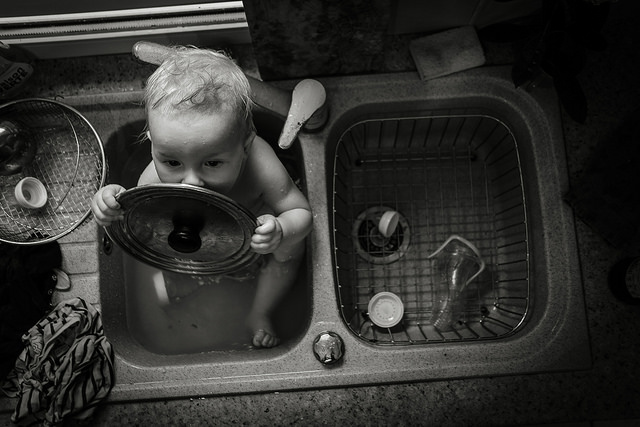
Perhaps unsurprisingly, women still tend to perform more housework and childcare than men in heterosexual relationships. In an article published by Slate, sociologist Jill Yavorsky notes that progress has been made in equal sharing of household tasks, but a significant gender gap still remains. Yavorsky’s own research sheds light on the influence childrearing has on the division of labor.
“We found that couples evenly shared housework immediately before they had a baby. After the baby was born, a different story emerged. Men reduced their housework by five hours per week (women’s housework remained constant), and women took on 22 hours of child care per week versus men’s 14.”
Yavorsky summarizes research on the division of labor and suggests six major factors contribute to a more equal sharing of household responsibilities after having a child. Some are straightforward: men who believe labor should be divided equally are more likely to equally share responsibilities. Others reflect broader gender dynamics. Men with higher levels of education or who work in female-dominated professions, such as nursing, tend to more equitably share the work. The division of labor is also more equal in households where the woman earns more, works long hours, or is not home at the same time as the man. But despite recent steps in the right direction, significant inequality remains across the board. Yavorsky notes,
“Regardless of the economic arrangements of heterosexual couples, men rarely perform more housework or childcare than their spouses, nor do men typically drop out of the labor market when their wives work long hours, like women often do for their spouses.”

Comments